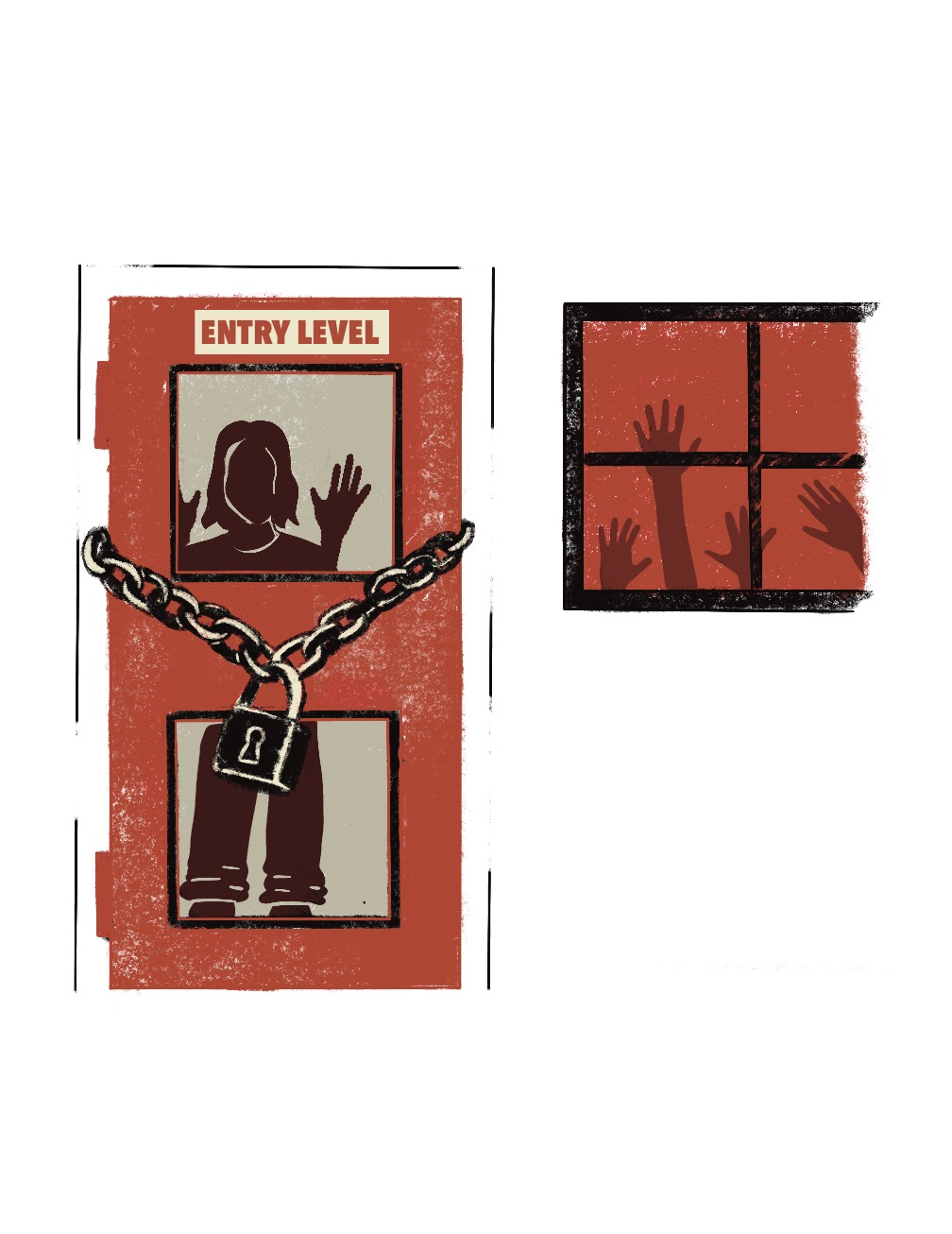As AI replaces some entry-level jobs, workers of all generations are pursuing their own path in the freelance space.

As AI replaces some jobs, freelance work is on the rise
Is AI taking our jobs?
For entry-level workers at least, the answer seems to be yes. For the first time on record, unemployment among young college graduates has been consistently higher than the overall rate. The Bureau of Labor Statistics reported an 8.5% unemployment rate for bachelor’s degree holders aged 20–24 in July 2025—almost double the national average.
Additionally, LinkedIn found that in sectors like technology, finance and consulting, entry-level job postings have dropped more than 18% over the past year.
“AI is fundamentally reshaping entry-level roles by automating routine tasks and raising the bar for required skills,” says Kelly Monahan, Managing Director, Upwork Research Institute. “This shift is both a challenge and an opportunity, requiring proactive upskilling from job seekers and a commitment to future-ready talent from organizations.”
For Gen Z, adapting to this market means leaning into freelance work. “For young people struggling to break into a tough job market, freelancing offers a way to earn income, build real-world skills, and take ownership of their careers right away,” says Monahan.
What’s changing
When I first entered the workforce, entry-level jobs were the first stepping stone in your career—the role where you learned business etiquette, work culture and what you were good at and what you loved to do. While performance expectations were certainly there, there was a general understanding that you were finding your feet and growing into your role. Today, this is changing.
“Traditional entry-level jobs are evolving into positions that demand adaptability, digital fluency, and the ability to collaborate with AI tools,” says Monahan. “To stand out, early-career professionals should focus on building foundational AI skills, demonstrating real-world applications of these tools, and showcasing soft skills like communication and problem-solving.”
In other words, younger workers now need to demonstrate competence in both technical abilities and interpersonal/human skills.
Viewed in a positive light, this shift is nudging young professionals toward higher-value, human-centric work. And, says Monahan, there are new opportunities rising in areas like prompt design, generative AI, and system integration. “These are creating fresh entry points into fast-growing fields,” she says.
The Gen Z pivot
In this changing landscape, Gen Z’s entrepreneurial spirit is serving them well.
“Gen Z is writing the career playbook, with over half (53%) turning to freelancing full-time as an intentional career choice over the traditional 9-to-5,” says Monahan. “Freelancing gives you more control over your career than a traditional job since you have the power to choose when, where, and how you work.”
She points out additional benefits of freelancing, such as the chance to develop new skill sets that full-time jobs often do not offer like self-direction, client communication, rapid adaptability, and an ability to market your own value in real time.
“This generation has an entrepreneurial mindset and increasingly views freelancing and independent work as a full-time career option, as opposed to a side hustle, because of the freedom, autonomy, and flexibility that freelance work offers,” says Monahan.
Interestingly, the tool that may have taken away some of their entry-level job opportunities is the very tool making alternate careers possible. “On Upwork, we see that AI is reshaping jobs,” says Monahan. “Freelancers primarily use AI to augment human work 71% of the time, which frees up time spent on low-value tasks and enables talent to focus on more creative and strategic contributions.”
Moreover, it’s not just Gen Z leaning into the freelance space. “Outside of this generation, we see that more than one in four (28%) US knowledge workers are now freelancing or working independently, showing that this isn’t just a stopgap—it’s a long-term option already shaping the future of work.”
Living free(lance)
For a generation that finds more security in being their own boss than working for someone else, freelancing is a natural fit. “Many people start small, taking on projects as a side hustle, but we are increasingly seeing independent skilled workers turn to freelancing as a full-time career path,” says Monahan. “What’s more, nearly half of CEOs say they plan to increase freelance hiring, and even employees are leaning on freelancers to fill critical skill gaps.”
To those looking at freelance as a potential career, Monahan has a few words of advice. “Start by identifying your strengths, build a simple portfolio, and take on smaller projects to gain experience,” she says. “Every project you complete not only builds your skills but also your confidence, positioning you for bigger opportunities down the road.”
Freelancers should see their work as more than a paycheck, Monahan stresses. “It is a crash course in entrepreneurship. Every project teaches you to pitch ideas, negotiate contracts, manage your own time, and deliver outcomes without the safety net of a manager.
“Those experiences build resilience, self-advocacy, and personal branding in ways full-time, traditional entry-level jobs don’t.”
Monahan notes that Gen Z freelancers are also ahead of the curve on technology adoption, with 61% training themselves on generative AI tools compared to 41% of traditional employees. “These are the muscles young workers need to stand out, and they are proving to be a real differentiator in a crowded job market,” she says.
Two perspectives
At first glance, the news that AI is eating up entry-level opportunities for younger workers is depressing. But it can also be seen as a positive force, pushing humans to skill up faster, take control of their own careers and leave the tedious work to the machines.
“What we are seeing is a fundamental shift in how people think about work,” says Monahan. “More professionals are choosing freelancing as a full-time career, not just a side hustle, and Gen Z is leading that change.”
Seen in this light, AI may just be helping today’s younger workers find their own way. “While much has been said about AI eliminating jobs, Gen Z freelancers are actually ahead of the curve,” Monahan says. “In today’s market, that mindset is not just useful, it is a competitive advantage.”





Comments
Join Our Community
Sign up to share your thoughts, engage with others, and become part of our growing community.
No comments yet
Be the first to share your thoughts and start the conversation!